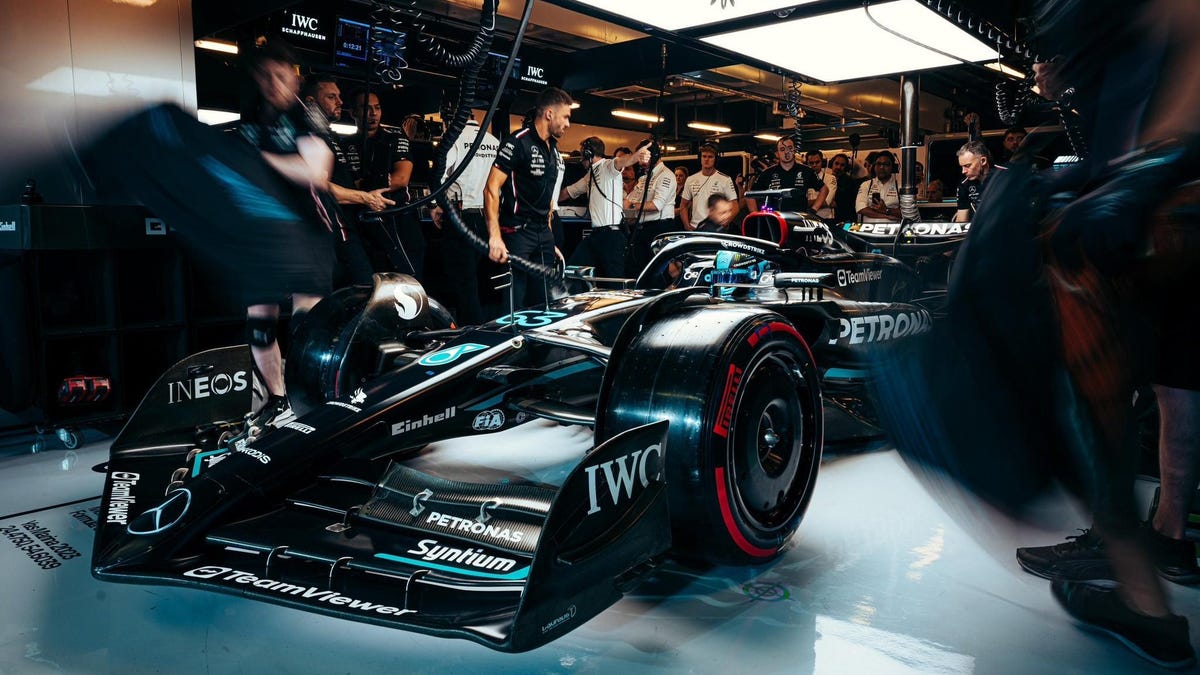As the Formula 1 calendar expands yet again to 24 races in 2024, racers and their teams will be stressed beyond breaking with intercontinental travel, and an ever increasing number of back-to-back race weekends. The 2023 season ended with seven Grands Prix in nine weeks. Mercedes driver George Russell has recently been quite vocal about reducing the number of races that an individual non-driver member of the team can attend. Is there a reason a data engineer or right front tire changer needs to be at every race?
Last weekend’s race in Abu Dhabi came just days after the finish of the premier race in Las Vegas. Between the time zone shifts, the races taking place at night, and several hours of flights in between, the teams didn’t have much time for rest and relaxation. Not only does this affect how well the team can function as a group, but it invites illness into the paddock, potentially spreading to the drivers themselves. Russell admitted that he had a terrible fever in Las Vegas and had trouble sleeping, and it developed into a relentless cough for the race in Abu Dhabi.
He’s quick to clarify that he’s not making excuses for himself or the 19 other drivers on the grid.
“The drivers, we have it the best from every single person in this paddock,” Russell told RacingNews365.
“The way we travel, we’re in a very fortunate position, but everybody up and down the paddock – I’ve got so many mechanics who are ill, people in the engineers’ office, just really struggling with the constant time zone shifts, the body not knowing where you are, eating at different times, staying in different hotels, different environments, different climates.
“The body’s getting confused. I think there are talks for next year about personnel being regulated that they can’t do every single race.
“I think that would be a good thing. I don’t think it’s sustainable for 4,000 people to do 24 races a season, especially when you see how geographically it still doesn’t make a huge amount of sense.”
The geographic nonsense of the 2024 calendar is truly something to behold. The teams will spend May and June ping-ponging between Miami, Italy, Monaco, then back across the Atlantic to Montreal, Canada, before jetting back to Spain. That doesn’t seem like an efficient use of airplanes, or the teams’ time, frankly. F1 calls it “big steps forward in regionalisation” but I’d say there’s still some work to be done.
If this calendar is going to be so grueling, the series should institute a rule precluding most team members from attending all 24 rounds. Not only would this mean a more humane working schedule, but it would help keep the drivers safer. Unfortunately that move would likely need to come with an increase in the amount of money teams can spend in a season to cover extra salaries and more travel. Don’t worry, Red Bull can write it off on their catering budget.

